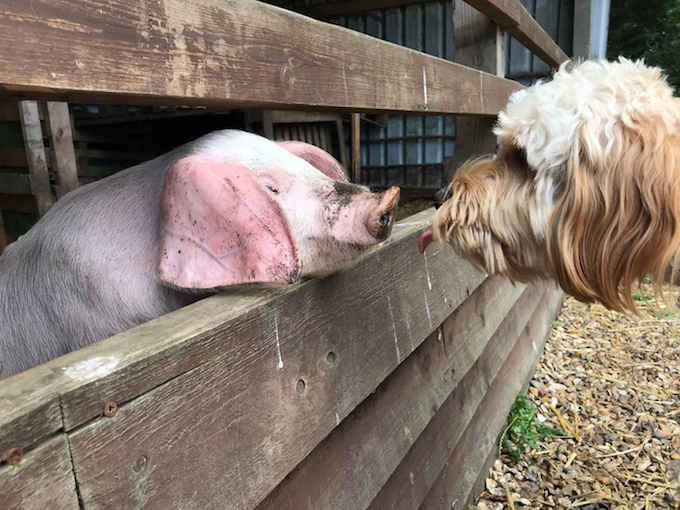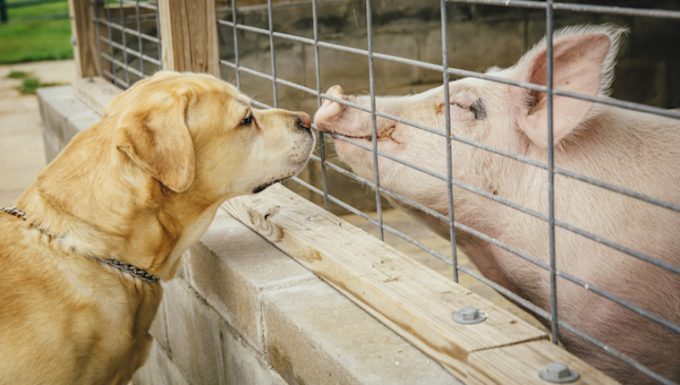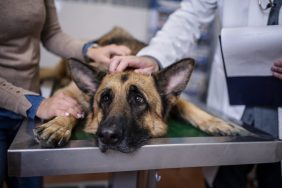Pseudorabies virus infection in dogs is a condition that is passed from swine to dogs by direct contact. Also, eating infected meat can cause the condition.
Thankfully, the condition is quite rare. But unfortunately it is often fatal — and there is no cure for the condition.
Technically, the condition is also known as Aujesky’s disease. Also, you might hear the condition called mad itch.
If you see the signs of the condition in your dog, then get to a veterinarian for a proper diagnosis and treatment.
Here’s what you should know about the symptoms, causes, and treatments for the condition.
Symptoms of Pseudorabies Virus Infection in Dogs
The condition produces a wide range of symptoms. For example, some of the most common symptoms include:
- Salivating
- Fever
- Vomiting
- Itching a lot
- Breathing very quickly
- Convulsions
- Coma
- Acting lethargic
- Depression
- Circling
- Hyperesthesia
However, in some cases a dog with the condition will show no symptoms.
Causes of Pseudorabies Virus Infection in Dogs

The cause of the condition is usually a dog coming into contact with infected swine. Additionally, the following circumstances can also cause the condition:
- Infected meat
- Contaminated water
- Infected feces
- Infected corn
- Eating infected rats
Generally, dogs living on farms are most at risk of developing the condition.
Treatments for Pseudorabies Virus Infection in Dogs
Firstly, your vet will ask about your dog’s symptoms. Secondly, your vet will ask about any circumstances where your dog could have come into contact with the virus.
Thirdly, blood tests will be taken to look for relevant antibodies — although the virus often works quicker than it takes to test the results.
Unfortunately, there is no cure for the condition.
Ultimately, prevention is the best way to avoid this condition. Keep your dog away from potentially infected swine. Also, never feed your dog uncooked pork.
Have you ever cared for a dog who suffered from this condition? How did your vet help your dog recover? Let us know in the comments section below.









